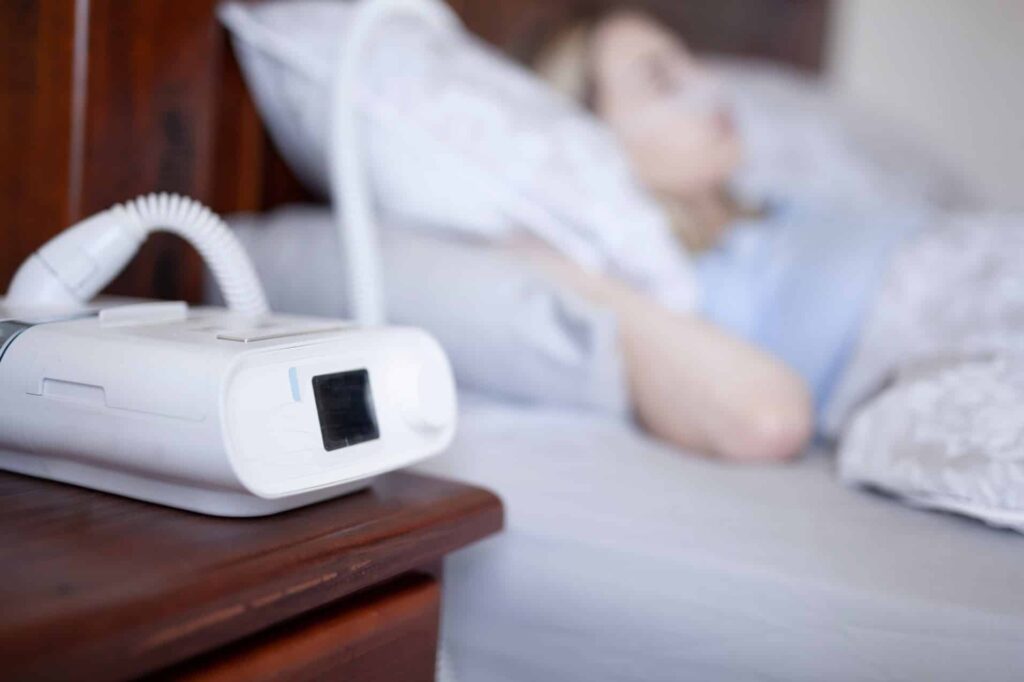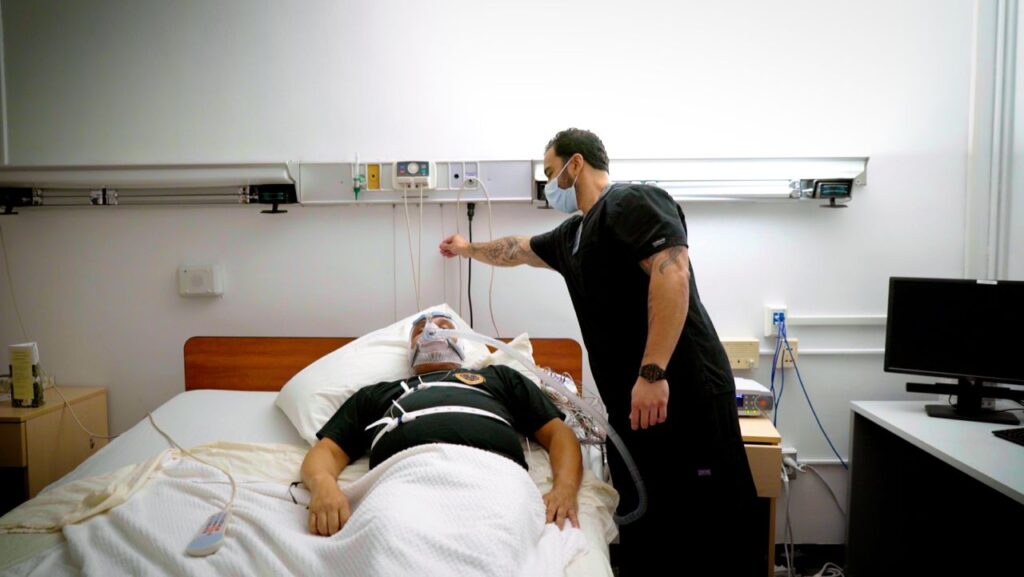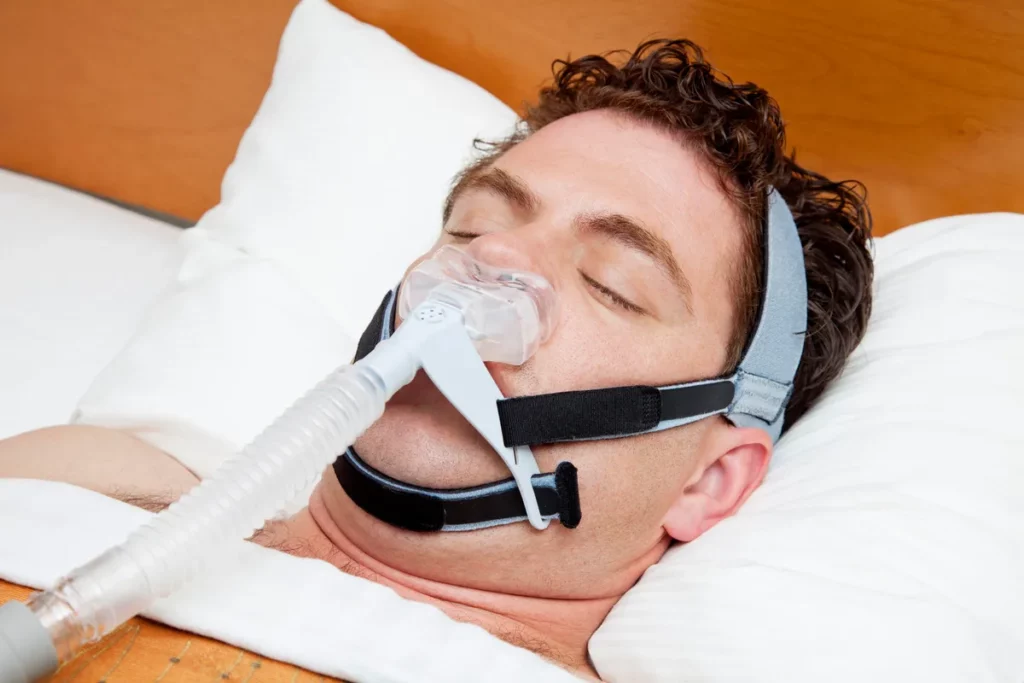If you suspect that you may have sleep apnea, it is important to get tested as soon as possible. Sleep apnea is a serious sleep disorder that can have significant health consequences if left untreated. In this article, we will explore the different options available for sleep apnea testing and how you can find a test near you.
Understanding Sleep Apnea
Sleep apnea is a condition that causes interruptions in breathing during sleep. These interruptions, known as apneas, can occur multiple times throughout the night and can last for several seconds or even minutes. When breathing stops, the oxygen levels in the body decrease, causing the brain to wake up briefly in order to restart the breathing process. This can result in fragmented sleep and lead to a range of symptoms and health risks.
Finding a sleep apnea test near me is easier than ever with the help of online resources and healthcare providers. Here are two ways to find a sleep apnea test that is convenient for you:
What is Sleep Apnea?
Sleep apnea is a sleep disorder characterized by pauses in breathing or shallow breaths during sleep. There are three main types of sleep apnea: obstructive, central, and complex sleep apnea syndrome.
Obstructive sleep apnea (OSA) is the most common type and occurs when the throat muscles relax, causing the airway to become blocked. This blockage can lead to loud snoring and disrupted sleep. It is estimated that around 80% of people with sleep apnea have obstructive sleep apnea.
Central sleep apnea (CSA) is less common and happens when the brain fails to send the proper signals to the muscles that control breathing. Unlike obstructive sleep apnea, CSA is not typically associated with snoring. Instead, it is characterized by periods of silence during sleep, as the individual temporarily stops breathing.
Complex sleep apnea syndrome (CSAS) is a combination of both obstructive and central sleep apnea. This type of sleep apnea is often seen in individuals who initially had obstructive sleep apnea but developed central sleep apnea after receiving treatment with continuous positive airway pressure (CPAP) therapy.

Symptoms and Risks of Sleep Apnea
Sleep apnea can manifest in a variety of symptoms, including loud snoring, excessive daytime sleepiness, morning headaches, difficulty concentrating, irritability, and restless sleep. It is important to note that not everyone with sleep apnea will experience all of these symptoms.
In addition to the symptoms mentioned above, sleep apnea can have serious health risks if left untreated. The repeated interruptions in breathing can put a strain on the cardiovascular system, leading to an increased risk of high blood pressure, heart disease, and stroke. Sleep apnea has also been linked to an increased risk of developing type 2 diabetes and metabolic syndrome. Furthermore, the fragmented sleep caused by sleep apnea can impair cognitive function and contribute to mood disorders such as depression and anxiety.
It is crucial for individuals experiencing symptoms of sleep apnea to seek medical attention and undergo a sleep study to receive an accurate diagnosis. Treatment options for sleep apnea include lifestyle changes, such as weight loss and avoiding alcohol and sedatives before bedtime, as well as the use of continuous positive airway pressure (CPAP) therapy, oral appliances, and in some cases, surgery.
The Importance of Sleep Apnea Testing
Getting tested for sleep apnea is crucial for accurate diagnosis and appropriate treatment. Sleep apnea testing can confirm whether you have the condition, determine its severity, and guide the selection of the most effective treatment options. Additionally, diagnosing sleep apnea can uncover other underlying sleep disorders that may be contributing to your symptoms.
When you undergo sleep apnea testing, you are taking a proactive step towards better health and well-being. By identifying and addressing sleep apnea early on, you can prevent potential complications and improve your overall quality of life. The testing process typically involves monitoring your breathing patterns, heart rate, and oxygen levels while you sleep, providing valuable insights into your sleep quality and potential disruptions. Read more about monitoring on https://www.evalcommunity.com/career-center/what-is-monitoring/
Why Should You Get Tested?
Getting tested for sleep apnea is important because it can significantly improve your quality of life. Effective treatment can help alleviate symptoms such as snoring, excessive daytime sleepiness, and fatigue, allowing you to feel more rested and energized throughout the day. It can also reduce the risk of developing more serious health complications associated with untreated sleep apnea.
Moreover, undergoing sleep apnea testing can lead to personalized treatment plans tailored to your specific needs. Depending on the results of the testing, your healthcare provider can recommend interventions such as continuous positive airway pressure (CPAP) therapy, oral appliances, lifestyle modifications, or surgical options to address your sleep apnea effectively.
The Consequences of Untreated Sleep Apnea
Untreated sleep apnea can have serious consequences for your health. It has been linked to an increased risk of cardiovascular problems, such as high blood pressure, heart attack, and stroke. Sleep apnea can also worsen existing medical conditions like diabetes and obesity. Additionally, untreated sleep apnea can negatively impact your mental health and quality of life, leading to problems such as depression, anxiety, and decreased productivity.
By highlighting the potential risks of untreated sleep apnea, it becomes evident why seeking testing and subsequent treatment is essential. Addressing sleep apnea can not only improve your physical health but also enhance your emotional well-being and cognitive function, promoting a more vibrant and fulfilling life.
Types of Sleep Apnea Tests
There are two main types of sleep apnea tests commonly used for diagnosis: in-lab sleep studies and home sleep apnea tests. Both options have their advantages and can provide valuable information for diagnosing sleep apnea.
In-Lab Sleep Study
An in-lab sleep study, also known as a polysomnography, is a comprehensive test that is performed overnight at a sleep center or hospital. During the study, various sensors and electrodes are attached to your body to monitor brain activity, eye movements, heart rate, breathing patterns, and oxygen levels. The data collected during the study is analyzed by sleep specialists to determine if you have sleep apnea and its severity.
One of the key benefits of an in-lab sleep study is the ability to monitor a wide range of physiological parameters simultaneously, providing a detailed assessment of your sleep patterns and potential issues. Additionally, being in a controlled environment allows for more accurate monitoring and evaluation of your sleep quality, which can be crucial in diagnosing sleep apnea accurately.
Home Sleep Apnea Test
A home sleep apnea test, also known as a portable monitoring study, is a more convenient and cost-effective alternative to an in-lab sleep study. It involves wearing a device that records your breathing patterns, heart rate, and oxygen levels while you sleep in the comfort of your own home. The data collected is then sent to a sleep specialist who analyzes the results to diagnose sleep apnea.
One advantage of a home sleep apnea test is the comfort and familiarity of sleeping in your own bed, which can lead to more natural sleep patterns and potentially more accurate results. Additionally, the convenience of not having to travel to a sleep center can make it easier for individuals to undergo testing, especially for those with busy schedules or mobility limitations.
How to Find a Sleep Apnea Test Near You
Using Online Resources
There are numerous websites and directories that can help you locate sleep clinics or sleep centers near your area. These resources often provide detailed information about the services offered, the types of sleep studies available, and contact information to schedule an appointment.
When using online resources, it’s essential to read reviews and testimonials from other patients who have undergone sleep apnea tests at the facilities you are considering. This can give you valuable insights into the quality of care, the expertise of the staff, and the overall patient experience. Additionally, some websites may offer virtual tours of the sleep centers, allowing you to familiarize yourself with the environment before your visit. To find more about quality click here.

Consulting with Your Healthcare Provider
Your primary care physician or a sleep specialist can provide valuable guidance and recommendations for finding a sleep apnea test near you. They can assess your symptoms, refer you to sleep centers or clinics in your area, and help coordinate the testing process.
During your consultation with a healthcare provider, be sure to discuss any concerns or questions you may have about the sleep apnea test. They can explain the different types of tests available, such as home sleep studies or in-lab polysomnography, and help you understand the benefits of each option. Your healthcare provider can also discuss treatment options and lifestyle changes that may be recommended based on the test results, ensuring you receive comprehensive care for your sleep apnea.
Preparing for a Sleep Apnea Test
Once you have scheduled your sleep apnea test, it is important to prepare accordingly to ensure accurate results. Here are a few tips to help you get ready for your sleep study:
What to Expect During the Test
During an in-lab sleep study, you will be asked to arrive at the sleep center in the evening. A technician will show you to your private room, where you will be able to change into your sleepwear. The technician will then attach various sensors and electrodes to your body, which may include electrodes on your scalp, face, chest, legs, and fingertip. These sensors are painless and are used to monitor your sleep patterns and physical responses throughout the night.In a home sleep apnea test, you will be provided with a portable monitoring device and instructions on how to use it. The device will typically consist of a small monitor that you wear on your wrist or chest, as well as sensors that you attach to your body. You will be instructed on how to position the sensors and start the recording before you go to bed.Both types of sleep apnea tests are non-invasive and aim to capture information about your breathing, heart rate, and oxygen levels while you sleep.
Tips for a Successful Sleep Study
To ensure the accuracy and reliability of your sleep study results, it is important to follow these tips:1. Avoid consuming caffeine or alcohol on the day of the test, as they can interfere with your sleep patterns.2. Follow your usual bedtime routine and try to get a good night’s sleep.3. Arrive at the sleep center or set up your home sleep apnea test equipment on time to allow for a smooth process.4. Let the sleep technician or sleep specialist know if you have any concerns or questions before the test begins.5. Relax and try to sleep as naturally as possible. The goal is to capture your typical sleep patterns and behaviors.
In conclusion
Getting tested for sleep apnea is essential in order to receive an accurate diagnosis and appropriate treatment. By understanding what sleep apnea is, its symptoms and risks, the importance of testing, the available test options, and how to find a test near you, you can take the necessary steps to address your sleep apnea and improve your overall well-being. Don’t hesitate to seek medical advice and prioritize your sleep health.
Read about bulk billed sleep apnea test at: How to Access a Bulk Billed Sleep Apnea Test

